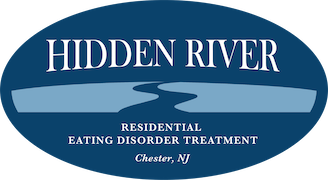Eating Disorder Recovery in the New Year
Despite what New Year’s resolution enthusiasts will tell you, every day is a good day to start a new habit. Goals set as New Year’s resolutions get a lot of credit for successful lifestyle changes, especially improvements in eating or exercising practices. While it’s great that healthy eating and regular exercise get the attention they deserve at the turn of the year, their emphasis alone might not benefit everyone – including those entering or going through eating disorder recovery.
Do New Year’s resolutions even work?
The answer is mixed and depends on who is asked, what their resolutions were, and how long into the new year they are asked. One study found that 55 percent of participants reported that their New Year’s resolutions were successful after one year, including resolutions around physical health, weight loss, and eating habits. Participants who had approach-oriented (i.e., “I will take more vacation”) change goals showed greater success in sticking to their resolutions than those who had an avoidance-oriented goal (i.e., “I will not spend money”). It is also important to mention that when participants received open support from other people in achieving their goals, they reported greater success.1
Another study found that New Year’s resolutions were more successful when individuals included both superordinate goals and subordinate goals – that is, they had an overarching goal that could be accomplished through the implementation of smaller goals.2 An example of this is to set a main superordinate goal to “be healthy” and achieve that goal by setting subordinate goals like working with a Registered Dietitian on healthy meal habits, shopping using a grocery list based on a healthy menu set, or joining a local club for the exercise of your liking to receive camaraderie and training.
Some people really enjoy making New Year’s resolutions and the adventure they may bring. There are people who discover setting the superordinate and subordinate goals can be invigorating. And there are others who may find themselves overwhelmed and struggle to find a starting point. In the face of making change, it is important to write a clear and succinct superordinate goal. Then, seek support from others who care about you to write the subordinate goals. With the support of loved ones it is more manageable to take action on the goals written down. This is especially important for those in eating disorder recovery.
There are other ways to experience the start of a new year too.
Along with New Year’s resolutions, there are many other ways to experience the start of a New Year. It can simply be a new beginning to reflect on your health, including your one’s eating disorder recovery. In addition to making a New Year’s resolution regarding your health, take time to consider the following questions:
- How can I understand my eating disorder? Look back on the past year. Consider writing down how the eating disorder (and/or other mental health conditions) impacted your life, including your academic life, work life, social life, spiritual life, and/or romantic life. Do your best to remain objectively neutral. Have a curious mindset. Assuming this may be difficult to do alone, seek out a loved one who may objectively help you write out the factual responses. This exercise is more of an exploratory journey to know yourself better than a means to self-judgment.
- What were my wins? Progress deserves to be acknowledged and celebrated in all of its forms. While reflecting on the past year, identify the events, decisions, or actions that illustrate your progress. Recognize and begin to take credit for your courage, strength, and resilience. Give yourself permission to feel proud of what you’ve gone through and how hard you’ve worked to achieve more in your eating disorder recovery.
- How can I manifest my future life? If you enjoy your imagination, then this one’s for you! Think about what you want your recovered life to look like. It is okay to daydream about how your home will look, how far along your career will be, and who you will want in your successful recovery life. Allow yourself to experience a new sense of hope and the potential excitement that comes with such profound success.
Every day is a new day!
Regardless of if it’s January 1st or a Tuesday in the middle of March, every day is a new day. The beginning of every day can be your first day for a new perspective, mindset, practice, or habit. It is in your best interest that you don’t wait another day –– or until the next new year –– to set a goal. Start making improvements now!
Believe that one seemingly minor improvement in your thinking patterns can have a monumental impact on your life. Consider practicing gratitude. A large body of research has shown that the daily practice of thinking and expressing gratitude does increase hope and happiness.3 And it improves one’s personal value and overall life perspective. There are many ways to practice gratitude every day. You can write in a gratitude journal or text three people expressing your appreciation. There are also many apps that support gratitude practices, making it an easy and impactful habit to build quickly.
If you’re looking for another way to work towards eating disorder recovery, call the Hidden River contact number. We can help you. The medical team and therapists at Hidden River will support you through making superordinate goals and subordinate goals while providing you with compassion-based treatment, a serene country setting and expert guidance to achieve your eating disorder recovery.
To learn more about Hidden River and to schedule a tour of its unmatched buildings and grounds, please call us today at 833.30.RIVER. We are currently accepting new patients and are newly Joint Commission accredited.
References
- Oscarsson, M., Caribring, P., Andersson, G., & Rozental, A. (2020). A large-scale experiment on New Year’s resolutions: Approach-oriented goals are more successful than avoidance-oriented goals. Plos One.
- Hochli, B., Brugger, A. & Messner, C. (2020). Making new year’s resolutions that stick: exploring how superordinate and subordinate goals motivate goal pursuit. Applied Psychology: Health and Well-being, 12(1), 30-52.
- Witvliet, C. V. O., Richie, F.J., Luna, L.M.R., Van Tongeren, D.R. (2019). Gratitude predicts hope and happiness: A two-study assessment of traits and states. The Journal of Positive Psychology, 14(3), 271-282.






Leave a Reply
You must be logged in to post a comment.